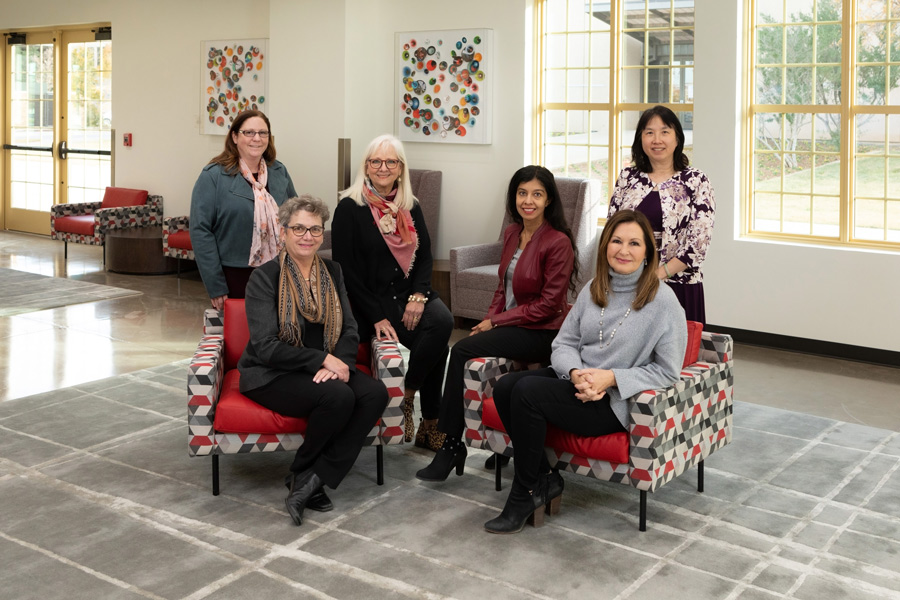 School of Medicine
School of MedicineExecutive Decision

Financial Training
The most valuable thing for Dufour in the program was the financial component. As a scientist, she had never had to think about the medical school’s budget. “I now have a firmer understanding on the importance of the clinical side and how much money it brings in for the school,” she said. “It has helped shape my perspective going forward.”
Sharmila Dissanaike, MD, Peter C. Canizaro Chair of Surgery, agreed. “The budgeting portion of the course was intense and quite rigorous, and some of the best instruction came from an accountant who had really good insight into financial leadership.”
Leadership Training
The program helps students develop tools to manage and lead teams of people who think differently than you do, Jumper added.
One of the ways this was taught was through pragmatic experience. “We were required to interview leaders from our university,” Dissanaike added. “The objective is to better understand the education system you work for.”
Networking
Networking is not an inherent skill and a lot of times must be learned, Jumper added. “I have no problem meeting people as an experienced physician but I can see how it can be intimidating for new professionals, which is why we provide networking instruction in our course, Life Lessons in Leadership.”
Life Lessons in Leadership
Before Leslie Shen, PhD, associate dean for research in the School of Medicine and founding director of the TTUHSC Center of Excellence for Integrative Health, attended ELAM, she attended the L3 course.
“L3 provided me with many skills that made me interested in advancing my career,” she added. “I enjoyed networking with colleagues from my own university and feel this is a wonderful resource for female faculty.”
The L3 program, which is offered every two years, has been postponed due to the pandemic. However, they hope to pick back up for the next cycle scheduled for 2024.
“We appreciate the investment that the School of Medicine made for us to attend ELAM and want to provide availability for more faculty to take advantage of these resources through L3,” Dissanaike said. “We look forward to resuming our in-person coursework once it is safe enough to do so.”